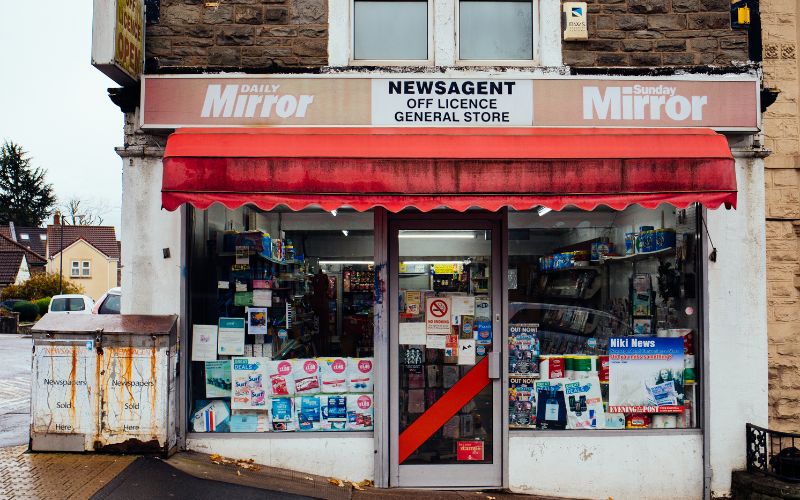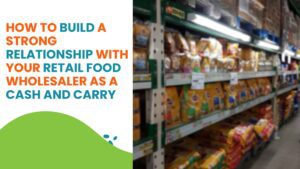Convenience shops play a crucial role in meeting the immediate needs of consumers. These small-scale stores are often the go-to solution for busy individuals seeking quick and accessible products. The market value of convenience store retail in the UK was forecast to reach over £ 45.4 billion. This figure was forecast to increase by over 10 per cent to reach more than £ 50 billion by 2026. Behind the scenes, retail wholesalers act as indispensable partners, providing convenience shops with various benefits contributing to their success. This blog will explore how convenience shops leverage retail wholesalers to enhance their efficiency, product variety, pricing strategies, and overall customer satisfaction.
Bulk Purchasing Power

One of the primary advantages that convenience shops gain from retail wholesalers is the ability to purchase goods in bulk. Retail wholesalers operate on larger scales, allowing them to secure products at lower unit costs. This cost efficiency translates to significant savings for convenience shops, enabling them to maintain competitive pricing and attractive profit margins.
By buying in bulk, convenience shops can also reduce the frequency of restocking, minimising operational disruptions and ensuring that popular products remain consistently available to customers. This symbiotic relationship between convenience shops and retail wholesalers creates a win-win situation, as both parties benefit from economies of scale.
Moreover, the ability to buy in bulk fosters better relationships between convenience shops and their suppliers. It opens the door for customised orders, ensuring that the shop can cater to the specific demands of its local customer base.
Diverse Product Range

Retail wholesalers offer convenience shops access to a diverse and extensive range of products. This diversity is essential for meeting the varied preferences and needs of consumers. Whether it’s snacks, beverages, toiletries, or household essentials, retail wholesalers provide convenience shops with a wide selection of goods to effectively cater to their local customer base.
Wholesalers often introduce new products to the market, enabling convenience shops to stay ahead of trends and offer innovative items that appeal to changing consumer demands. This constant flow of new and diverse products contributes to the overall appeal of convenience shops as one-stop destinations for everyday necessities.
Streamlined Supply Chains
Efficient supply chains are vital for the success of convenience shops, where inventory management is critical due to limited space. Retail wholesalers streamline the supply chain process by providing reliable and consistent deliveries. This helps convenience shops maintain optimal stock levels, reduce the risk of stockouts, and avoid overstock situations.
Many retail wholesalers offer technology solutions such as inventory management systems that help convenience shops track sales, manage stock levels, and make data-driven decisions. This level of support enhances the overall operational efficiency of convenience shops, allowing them to focus on customer service and satisfaction.
Negotiating Power

Establishing strong relationships with retail wholesalers gives convenience shops increased negotiating power. As regular clients, they can negotiate favourable terms, discounts, and credit arrangements. This negotiation flexibility allows convenience shops to adapt to market fluctuations, seasonal trends, and economic changes, ensuring they can maintain competitive pricing and profitability.
Wholesalers often provide marketing support, such as promotional materials and advertising assistance. This collaborative effort helps convenience shops effectively promote products and drive customer traffic, creating a mutually beneficial partnership.
Customer Loyalty and Satisfaction
The compatibility between convenience shops and retail wholesalers extends beyond the operational aspects. Convenience shops enhance customer loyalty by consistently providing a well-curated selection of products at competitive prices. Retail wholesalers contribute to this loyalty by ensuring the supply chain remains efficient, minimizing disruptions and guaranteeing product availability.
Convenience shops have become trusted local hubs where customers can conveniently find their favourite products. This reliability and the cost-effectiveness facilitated by retail wholesalers strengthen the bond between convenience shops and their customer base.
Consistent product availability and competitive pricing create a positive shopping experience, fostering repeat business and positive word-of-mouth.
Read More: Maximizing Profit Margins: Tips for Convenience Stores When Purchasing from Retail Food Wholesalers
Conclusion:
The collaboration between convenience shops and Retail Wholesalers is integral to success. The symbiotic relationship between these two entities allows convenience shops to thrive by optimising costs, diversifying product offerings, streamlining operations, and enhancing customer satisfaction. As the retail industry continues to evolve, the partnership between convenience shops and retail wholesalers will remain a cornerstone of convenience and accessibility for consumers worldwide. With each benefiting the other, this collaboration exemplifies how strategic partnerships contribute to the overall resilience and prosperity of the retail ecosystem.





